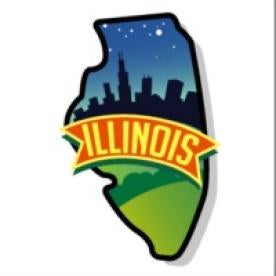The Illinois Department of Financial and Professional Regulation (IDFPR) has adopted amendments to its regulations governing Illinois controlled substance licensees (77 Ill. Adm. Code 3100). The adopted amendments, published in the March 13, 2015, Illinois Register (39 Ill. Reg. 3656) were effective Feb. 28, 2015, and bring the regulations up to date with the Illinois Controlled Substances Act (last amended in 2012) and federal law.
The changes: (a) clarify the registration requirements for med-level practitioners and temporary medical license holders; and (b) address procedural, security, prescription requirement and other general issues for all controlled substances licensees.
The changes, per the IDFPR, for mid-level practitioners and temporary medical license holders:
• Advanced practice nurses (APNs) and physician assistants (PAs) who have been granted clinical privileges at a hospital, hospital affiliate or ambulatory surgical treatment center are added to the list of persons who may be licensed to prescribe controlled substances.
• Exemption conditions for APNs, PAs and temporary license holders are updated to include verification by the employer institution that the prescriber is licensed to select, order and administer, and issue discharge prescriptions for controlled substances and that all prescriptions issued include the institution's registration number, the individual's specific internal code, and service identification number.
• APNs and PAs must meet the education requirements established in the Illinois Controlled Substances Act.
The changes, per the IDFPR, that impact all license holders:
• A person who writes prescriptions without proper authority may be fined up to $50 for each unauthorized prescription and may be subject to other IDFPR disciplinary actions.
• Licensees who wish to modify their licenses must follow the same procedures as applicants for new licenses.
• The criteria for terminating a license are updated to include change of status of the primary professional license.
• All changes in legal existence, business, professional practice and name or address must be reported to IDFPR within 10 days after the change.
• Licenses for APNs and PAs who were delegated controlled substance prescriptive authority will terminate when the authority does.
• Security requirements are updated to require licensees to make available extra security evidence to the IDFPR upon request.
• Personal bags are not allowed in any area where controlled substances are handled or stored. • Physical controls in a pharmacy must include an alarm system and a key maintained by a registered pharmacist or certified pharmacy technician.
• Criteria for evaluating security systems are updated to include adequacy of supervision, having access to manufacturing and storage areas, and the applicability of federal, State and local security requirements.
• Record and inventorying requirements are updated to reflect the use of electronic prescriptions and requiring licensees to conduct annual inventories of actual count for Schedule II controlled substances (those with high potential for abuse or addiction) and approximate count for Schedule III, IV and V controlled substances.
• Copies of a federal DEA Report of Theft or Loss of Controlled Substances must be filed with IDPFR. Also, all licensees must log every prescription for at least five years and keep the original transcript or copy of each verbal prescription available for inspection.
• Criteria for alternative reporting are established.
• The rulemaking clarifies that practitioners cannot self-prescribe or prescribe to immediate family members unless there is a bona fide practitioner-patient relationship.
• Provisions for electronic and printed prescriptions (in addition to written prescriptions) are added. Prescriptions for Schedule II controlled substances may be transmitted to a pharmacy by fax.
• Pharmacists may not change the date, name of patient name of prescriber or the name of the drug on a schedule II prescription.
• Schedule III, IV or V controlled substance prescription refills may only be done at the request of the patient to contact the prescriber.
• The rulemaking clarifies that partial fillings of prescriptions are not considered refills and clarifies partial filling procedures for patients in long term care facilities or who are terminally ill.
• IDFPR is allowed to grant variances from the rules in individual cases. • Other updates reflect the federal regulations and remove obsolete and outdated Sections.
This list is an updated version of an alert issued by IDFPR in April 2014, when the amendments to the regulations were first proposed.
This article was written with contributions by Serj Mooradian.


 i
i

